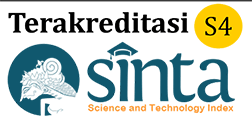The Implicatures Used in the Debate Between Barrack Obama and John McCain
Keywords:
Conversational implicature, Generelized Implicature, Particularized Implicature, DebateAbstract
This study focuses on the utterances through debate using Grice’s theory of implicature. Implicature is part of pragmatics study that concerns with implied meaning that is inferred from an utterance or words, but it is not the truth of utterance or words. Besides, in political debate when two people of different political persuasions confront each other, there is more at stake than grasping the immediate meaning of the words they use, moreover they also practicing language game which contain a lot of implicatures. Based on this background, the study about the implicature is intended to describe kinds of implicatures found in the debate between Barack Obama and John McCain and how the implicatures are used in the debate between Barack Obama and John McCain. The data are taken in the forms of conversations done by Barrack Obama and John McCain in their first debate which is held by Missisipi University on September 26th 2008.
The result of this study reveals some findings covering the formulated research problems. Finally, the writer suggests to the next researcher analyzes conversational implicature not only focuses on the type but also the characteristics of the conversational implicature in order to attain deep analysis toward Implicature’s theory.
Downloads
Additional Files
Published
How to Cite
Issue
Section
License
Upon acceptance for publication, authors transfer copyright of their article to Jurnal Ilmiah Teknologi Informasi Asia. This includes the rights to reproduce, transmit, and translate the material in any form or medium.
While the editorial board endeavors to ensure accuracy, they accept no responsibility for the content of articles or advertisements. Liability rests solely with the respective authors and advertisers.
Website material is licensed under a Creative Commons Attribution 4.0 International License (CC BY 4.0). Under this license, users are free to share and adapt the material for any purpose, including commercial use, provided license terms are met. These freedoms are irrevocable by the licensor under such conditions.










